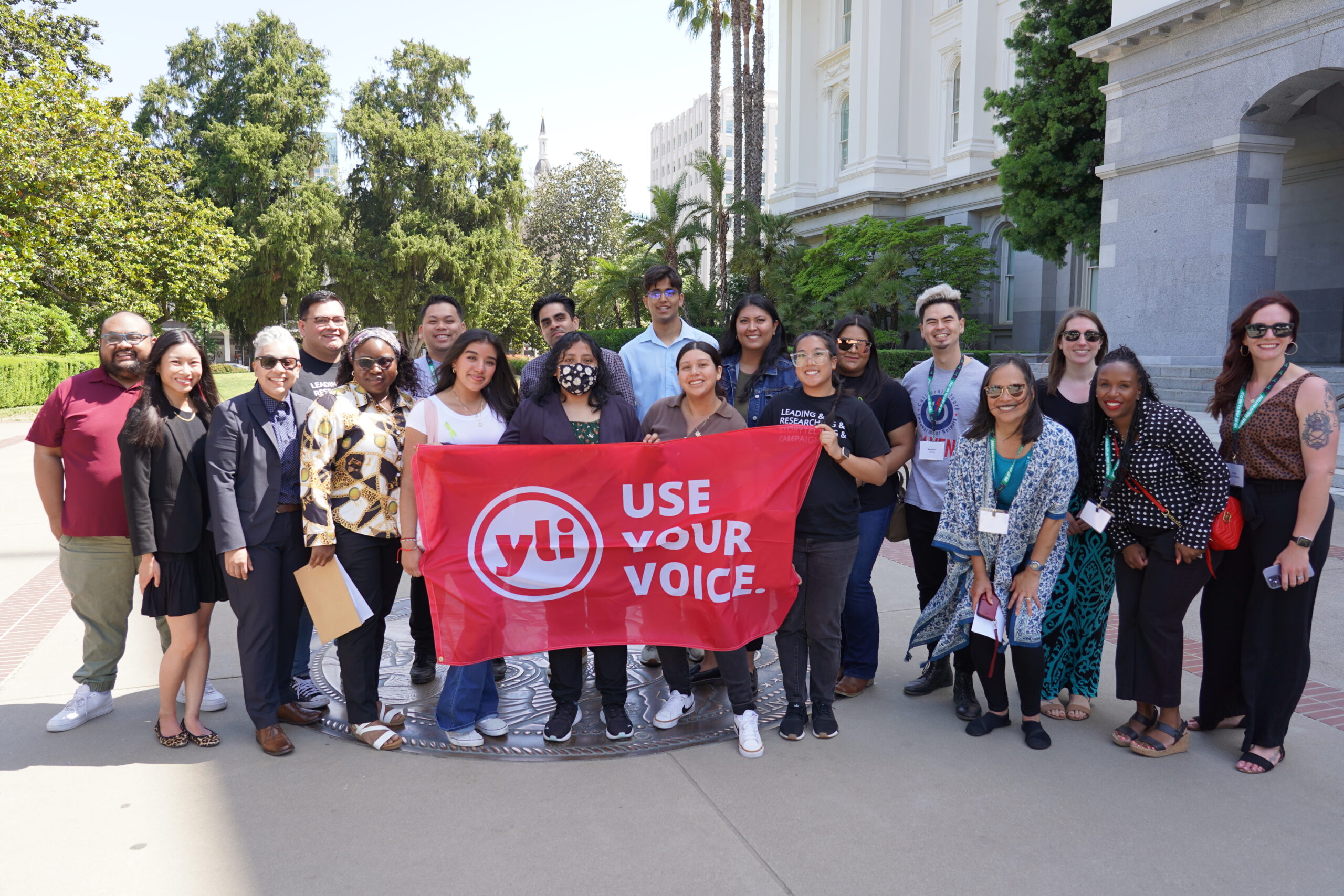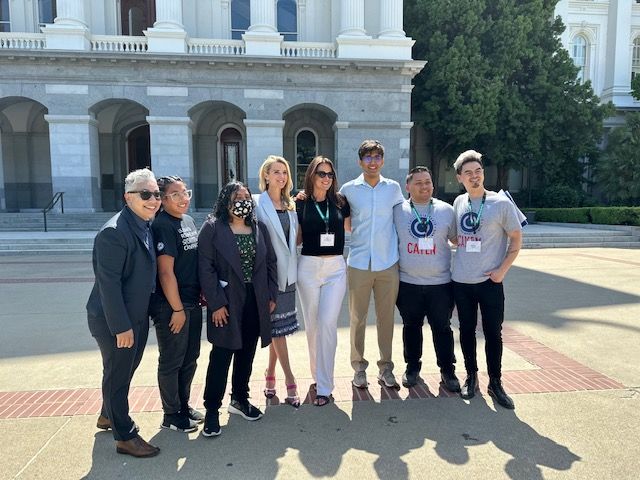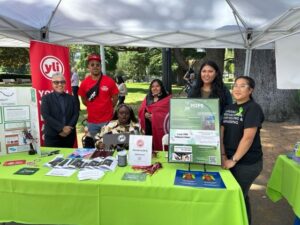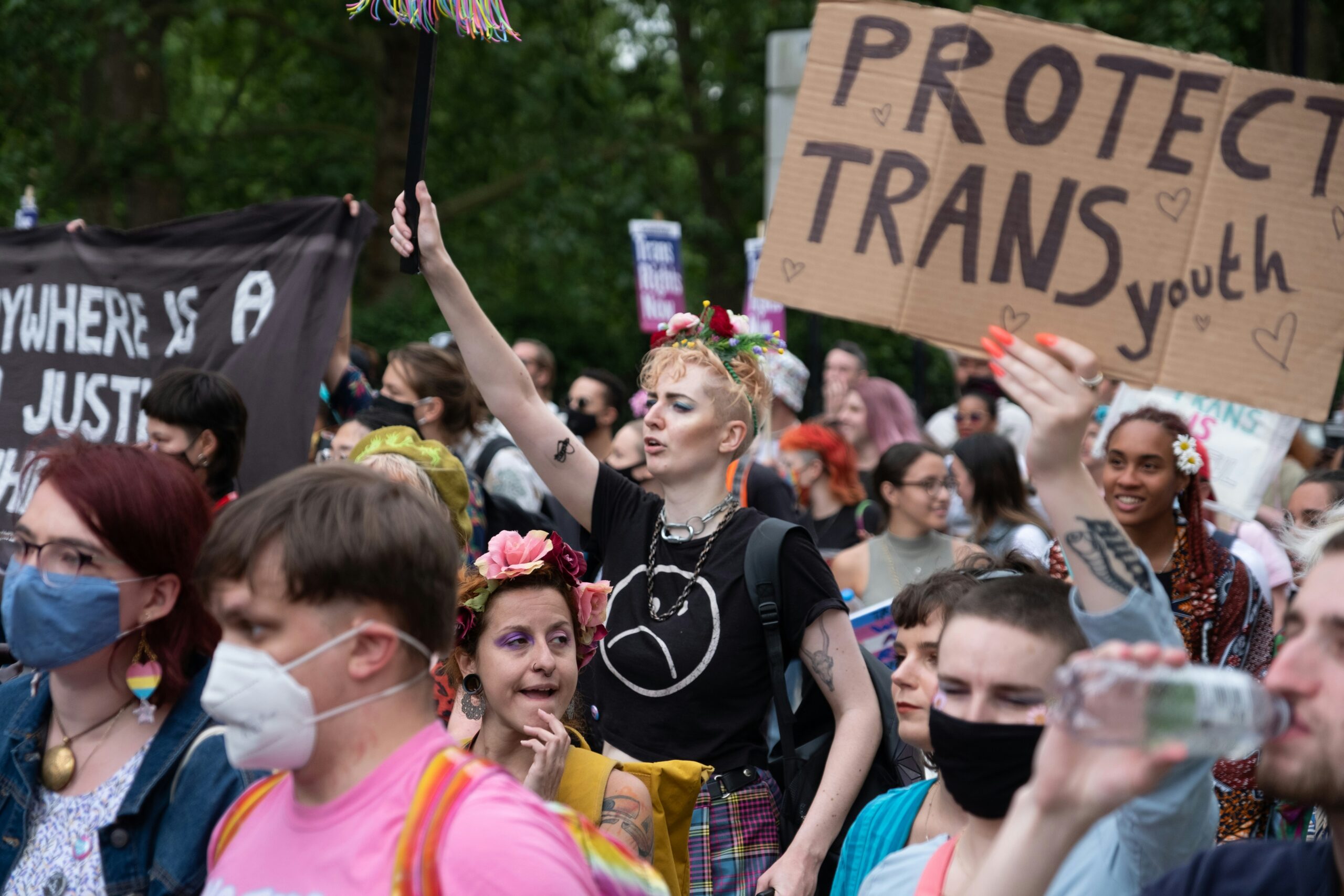
On March 24, Youth Leadership Institute, state representatives, and other mental health organizations and advocates gathered in front of the Capitol building in Sacramento, California for a press conference to discuss the effects of social media on mental health.
The press conference was hosted by Healthy Online Platforms for Everyone [HOPE], a program of Youth Leadership Institute. HOPE’s mission is aimed towards holding social media platforms accountable for the messages displayed on their sites.
The press conference was held during Mental Health Awareness Month with the intention of raising awareness to the negative messages younger audiences receive on social media, and included speeches from HOPE youth, California State Representative Buffy Wicks, and First Partner of California Jennifer Siebel Newsom.
“I hope we showed the negative impacts of online platforms on youth,” said Nancy Aguilar, a member of the HOPE Youth Coalition. “I hope we showed that there is a need for more change as the well-being of youth online has become a bigger issue now.”
Aguilar shared her experiences as an older sister. Since both of her parents only speak Spanish, she is the one monitoring her younger brother’s media presence.
She said she is very upset to see some of the ads she continuously sees on his screen no matter how much she tries to restrict his access.
“I’ve seen bad game ads for my 10-year-old little brother,” Aguilar said. “He’ll just be playing a game and there are advertisements that are incredibly inappropriate and we need to do something about it.”
Social media platforms do not filter the ads that are shown on their sites which causes youth to see things that may be inappropriate for their age.
Aayush Verma, the second youth speaker with HOPE, shared the key messages of the coalition and the need for transparency.
“Some of the key messages we want to echo and that we want social media companies to take into account are the need for transparency and exposure,” Verma said. “One way we can do this is by creating an app where we can essentially see and monitor all the ads being displayed on these sites. If we can do this, we can achieve transparency.”
 California State Representative Buffy Wicks and First Partner of California Jennifer Siebel Newsom were also invited to share a few words about the subject.
California State Representative Buffy Wicks and First Partner of California Jennifer Siebel Newsom were also invited to share a few words about the subject.
Wicks said that social media platforms need to be held accountable for everything that is posted and shown on their sites. She said that this is an issue that needs to be made known to everyone to ensure the safety of youth everywhere.
“I want to live in a world where our community is safe, where our children are safe,” Wicks said during her speech. “I want to be able to go to my daughter’s pediatrician appointments and for her doctor to talk to me about the risks of social media and to give me guidelines as a parent about how to keep our kids safe.”
During the press conference, Assembly Bill 2273, or the California Age-Appropriate Design Code Act, was highlighted. Beginning on July 1, 2024, the bill will require any business or platform with an online presence to comply with regulations and default privacy settings taking account the best interests of children.
Siebel Newsom spoke about how as a mother it is very upsetting to know that her child is seeing things through an unfiltered lens.
“Youth mental health and addictive social media use are a critical issue, not just for me as the first partner and the mother of four young children, but as a concerned citizen,” Siebal Newsom said during her speech.
She also spoke about the California Partners Project and the fact that there are groups of young people across the country who are tired of the mental drain from excessive time on social media.
The California Partners Project, which Siebel Newsom co-founded, is a project with the mission of ensuring the “state’s media and technology industries are a force for good in the lives of all children,” according to its website.
“With the help of researchers from UCLA, the report synthesizes the latest data, and shows how too much time online exposes young people to a constant comparison culture and leads to feelings of inadequacy and low self esteem, contributing to the unprecedented rise in anxiety and depression amongst youth,” she said.
Wicks encouraged people to be a part of the solution and not the problem.
“I want our school boards and our school districts to be in on this fight too. I want our teachers union to demand the change that we want to see. I want our faith leaders to say ‘enough is enough.’ We have to keep our kids safe and I want our tech companies to take more responsibility for what they’re doing to our children,” she said.
 The press conference concluded with a resource fair where mental health organizations and advocates tabled. There was information on what individuals can do to support the fight against holding social media platforms accountable and resources for anyone who may have needed outreach.
The press conference concluded with a resource fair where mental health organizations and advocates tabled. There was information on what individuals can do to support the fight against holding social media platforms accountable and resources for anyone who may have needed outreach.
Siebel Newsom gave a piece of advice to youth facing trouble with mental health and social media correlated issues:
“I think we all need to learn to live without social media. Go on a digital detox and see how you feel after you’ve spent some time away. I recommend getting out in nature, engaging with friends, having a meal or even making a meal. Essentially being in physical relationships versus with a device.”


